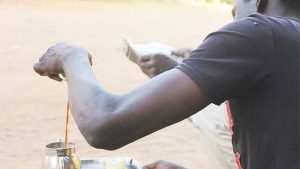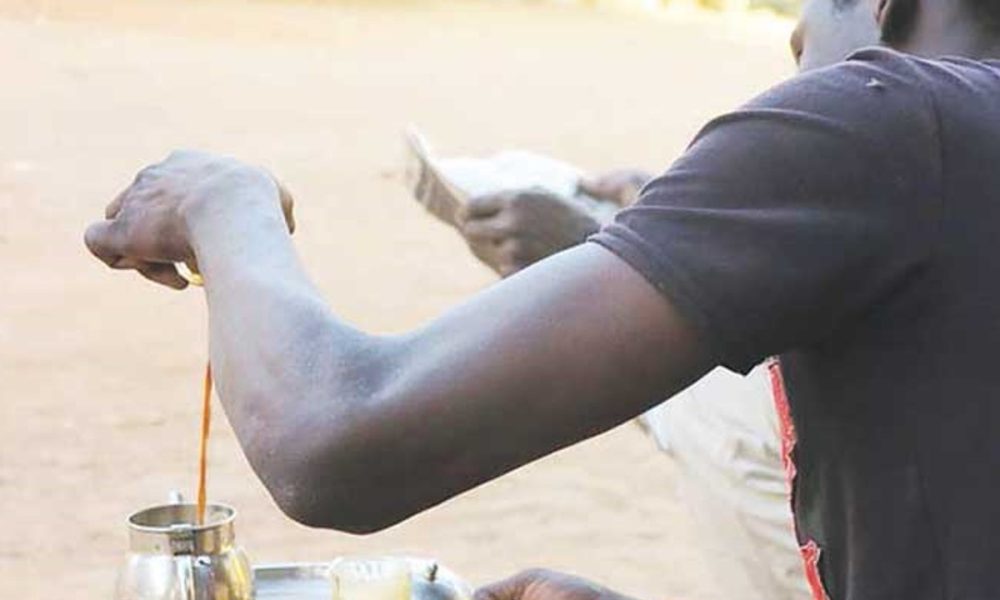The idea of Vous is one of the most unique and enduring cultural phenomena in Banjul. The word itself derives from the French rendezvous, meaning appointment or meeting place. In the Gambian context, Vous is far more than just a physical location; it is a social institution where young men, mainly in urban Banjul, gather to socialize, exchange ideas, and build lifelong bonds.
Traditionally, a Vous is a group of youths with shared interests, whether in football, politics, or broader social issues. The gatherings are usually accompanied by long conversations over green tea (attaya), a ritual that in itself fosters dialogue, patience, and reflection.
In the 1960s and 70s, Vous gatherings played roles similar to civil society organizations at a time when formal civil society was still nascent. One famous example is the Kent Street Vous, which became a hub of community debate and mobilization. Another is the Festa Vous, immortalized by the legendary Super Eagles in their hit song Fiesta Vou. The Music House Vous remains a classic example of an apolitical gathering that brings together members with different backgrounds and political affiliations, united not by politics, but by the “Music House spirit” of brotherhood and oneness.
In rural Gambia, the Vous finds its equivalents in the Bantaba and Grand-Palas. These spaces, usually shaded by large trees or verandas, serve as gathering points for elders to discuss social issues, deliberate on community politics, and play traditional games such as draughts, “chokoo”, or card games like balot. In the 1970s, as civil servants from Banjul were posted to towns and villages across the country, they carried the Vous tradition with them, planting the seeds of similar youth gatherings in provincial areas
Despite its cultural significance, the Vous has not escaped criticism. There is a widespread misconception that it is merely a gathering of idle young men who spend their days drinking attaya and smoking. While it is true that some groups have fallen into such habits, this is not the full story. Like any institution or social space, Vous vary in their character: some are indeed unproductive, but many more are constructive spaces where ideas are exchanged, social issues debated, and mutual support cultivated.
The Vous is, in essence, a reflection of society, containing both its strengths and weaknesses.
At its best, the Vous acts as a social safety net and a therapeutic community. It is a place where marriage decisions are discussed, conflicts resolved, and moments of joy or sorrow shared. It performs functions not unlike those of social workers or therapists in Western societies, providing emotional support, collective guidance, and a sense of belonging.
For many Banjulians, being part of a Vous is not just a phase of youth but a lifelong identity. Some members, now in their 60s, 70s, and 80s, continue to meet regularly. The Music House Vous, for example, still gathers every Friday for lunch at 28 MacDonnell Street in Banjul.

It is precisely this sense of continuity, trust, and dependability that has led some outsiders to view Vous culture with suspicion, giving rise to terms like the “Banjul Mafias.” In reality, what outsiders fear is simply the solidarity and cohesion that Vous culture fosters among its members.
Far from being dismissed as idle youth circles, Vous should be recognized as one of Banjul’s most enduring social traditions. They build networks of trusted friendships, nurture dialogue, and contribute to the cultural fabric of the city. The Vous of Banjul, now spread across the country, remains living testaments to the Gambian spirit of togetherness.
They deserve not only recognition but celebration.





